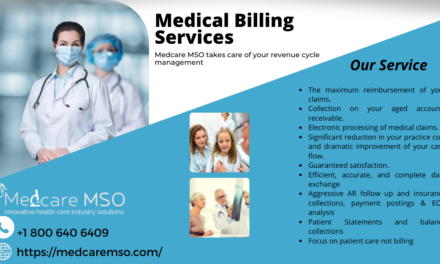Finding the right level of care for a loved one seeking rehab can feel overwhelming. With so many addiction rehab options available, understanding what best suits their needs is essential to ensuring long-term recovery.
The right level of care depends on factors such as the severity of their condition, their medical history, and their personal circumstances.
This resource, breaks down what you need to know.
Understanding Addiction and the Need for Rehab
Addiction is a complex and multifaceted issue that affects individuals, families, and communities. It is a chronic disease characterized by compulsive substance use despite negative consequences. Addiction can take many forms, including drug or alcohol addiction, and can have severe physical, emotional, and social consequences. Understanding addiction and the need for rehab is crucial for individuals and families affected by this disease.
Understanding Levels of Care in Substance Abuse Treatment
Rehab programs range from intensive medical supervision to more flexible outpatient treatment. Each level of care serves a different purpose, and choosing the correct one can make all the difference.
Inpatient Rehabilitation:
Inpatient or residential rehab provides 24/7 care in a structured environment. This level is ideal for those with severe substance use disorders, co-occurring mental health conditions, or previous unsuccessful attempts at sobriety. Inpatient rehab offers medical supervision, therapy, and peer support to help individuals build a foundation for long-term recovery.
Partial Hospitalization Program (PHP):
PHP is a step down from inpatient rehab but still offers intensive treatment. Patients attend structured PHP programming for several hours a day, five to seven days a week, while living at home or in a sober living facility.
This level of care works well for those who need continued support but do not require round-the-clock supervision.
Intensive Outpatient Program (IOP):
IOP provides treatment multiple days a week but allows individuals to maintain daily responsibilities such as work or school. This option suits those transitioning from inpatient or PHP who still need structured therapy while reintegrating into their everyday lives.
Assessing Your Loved One’s Needs
Determining the right level of care requires a professional assessment. As a family member, your insights and observations can be invaluable in determining the right level of care. Consider factors such as:
- The severity and duration of substance use
- Previous treatment history
- Co-occurring mental health disorders
- Level of motivation and support system
- Risk of withdrawal complications
Speaking with an addiction specialist or healthcare provider can help guide you toward the best treatment option.
The Admissions Process
The admissions process for addiction treatment typically begins with a confidential phone call or online inquiry. A treatment center’s admissions team will assess the individual’s needs and provide information about the treatment program and services offered.
This may include a comprehensive assessment, medical evaluation, and psychological evaluation. The admissions team will also discuss insurance options, payment plans, and other logistical details.
Treatment Therapies and Approaches
Addiction treatment therapies and approaches vary depending on the treatment center and the individual’s needs. Some common therapies and approaches include:
- Cognitive-behavioral therapy (CBT): A type of talk therapy that helps individuals identify and change negative thought patterns and behaviors.
- Medication-assisted treatment (MAT): The use of medications to help manage withdrawal symptoms and cravings.
- Family therapy: A type of therapy that involves the individual’s family members in the treatment process.
- Group therapy: A type of therapy that involves a group of individuals with similar issues and goals.
- Holistic therapies: Such as yoga, meditation, and acupuncture, which can help individuals manage stress and promote overall well-being.
Treatment centers may also offer specialized programs and services, such as:
- Dual diagnosis treatment: For individuals with co-occurring mental health disorders.
- Trauma-informed care: For individuals who have experienced trauma.
- LGBTQ+ specific treatment: For individuals who identify as LGBTQ+.
Healthcare Coverage for Drug and Alcohol Addiction Rehab: What You Need to Know
Understanding healthcare coverage is crucial when seeking rehab treatment. Many insurance plans cover addiction treatment, but the extent of coverage depends on your specific plan.
Private Insurance Most private health insurance policies cover addiction treatment under the Affordable Care Act (ACA). Coverage may include detox, inpatient rehab, outpatient programs, and therapy. However, policies vary, so it’s important to verify benefits, deductibles, and any out-of-pocket costs with your insurance provider.
Specialized Programs and Services
Addiction treatment centers may offer specialized programs and services to meet the unique needs of individuals and families. These may include:
- Detoxification programs: To help individuals safely manage withdrawal symptoms.
- Residential treatment programs: For individuals who require a more intensive level of care.
- Intensive outpatient programs (IOPs): For individuals who require a more structured treatment program.
- Partial hospitalization programs (PHPs): For individuals who require a more intensive level of care but do not require residential treatment.
Treatment centers may also offer specialized services, such as:
- Addiction medicine: The use of medications to help manage addiction.
- Mental health services: To address co-occurring mental health disorders.
- Family support services: To provide support and education to family members.
Supporting Your Loved One Through Recovery with Family Therapy
Rehab is just the beginning of the recovery journey. Addiction rehab provides the structured environment and resources necessary for your loved one to build a foundation for long-term recovery. Providing emotional support, encouraging healthy lifestyle choices, and being involved in their aftercare plan can help your loved one maintain sobriety.
Whether it’s attending family therapy, joining a support group, or simply offering encouragement, your support can make a significant difference in their long-term success.
Aftercare and Ongoing Support
Aftercare and ongoing support are crucial components of addiction treatment. Treatment centers may offer a range of aftercare services, including:
- Outpatient treatment: To provide ongoing support and therapy.
- Support groups: Such as 12-step programs or SMART Recovery.
- Relapse prevention programs: To help individuals manage triggers and prevent relapse.
- Alumni programs: To provide ongoing support and connection to the treatment community.
Family members and loved ones can also play an important role in supporting individuals in recovery. This may include:
- Attending family therapy sessions.
- Participating in support groups.
- Providing emotional support and encouragement.
- Helping individuals stay connected to their treatment community.
By understanding addiction and the need for rehab, individuals and families can take the first step towards recovery and a fulfilling and meaningful life.
Finding the Right Treatment Center for Your Loved One
Once you determine the appropriate level of care, finding a reputable rehab facility that specializes in drug and alcohol addiction is the next step. Look for accredited treatment centers with experienced medical staff, evidence-based therapies, and strong aftercare planning.
Reading reviews, touring facilities, and speaking with treatment professionals can help ensure you choose a program that meets your loved one’s needs.






